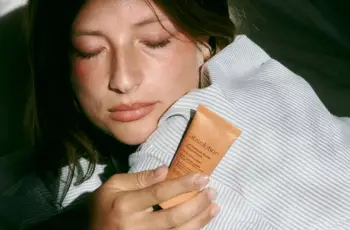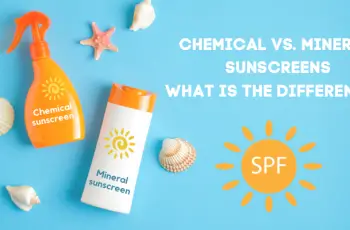
✨ How to Get Rid of Pimples Effectively: Clear Skin Tips Backed by Science
Pimples are one of the most frustrating and universal skin concerns that affect people of all ages, skin types, and backgrounds—whether you’re 13 or 35, no one is immune to the occasional breakout.
You may wonder what causes pimples to appear so suddenly, how to treat them quickly, and—most importantly—how to stop them from returning again and again.
The truth is, while pimples might seem random, they’re usually the result of blocked pores, excess oil, bacteria, or hormonal fluctuations that can trigger inflammation in the skin.
To help make sense of this, we’ve compiled answers to some of the most frequently asked questions about pimples, including proven ways to manage and reduce them over time.
Let’s break it down so you can finally take control of your skin, stop obsessing over breakouts, and build a clearer, healthier complexion you can feel confident in.
⏱️ How Do You Quickly Get Rid of a Pimple?
Let’s start with a reality check—there is no way to magically erase a pimple in five minutes, no matter how many internet hacks or “overnight miracle” treatments you try.
What you can do is treat the pimple effectively to reduce swelling, calm redness, and prevent it from getting worse, which gives your skin the best chance to heal.
Step one is to keep your hands away from your face—don’t pick, prod, or pop your pimples, especially with unwashed hands, which introduce even more bacteria.
Picking your skin may feel satisfying in the moment, but it delays healing, spreads bacteria, and increases your chances of developing acne scars or hyperpigmentation.
Clean hands mean less chance of transferring dirt, oil, and microbes to already inflamed areas—plus, resisting the urge to pop will allow your treatment products to work better.
Next, use an acne spot treatment that contains clinically backed ingredients proven to reduce breakouts and inflammation when applied correctly and consistently.
🔥 Top Ingredients for Fast Pimple Relief
One of the most effective ingredients in acne treatment is benzoyl peroxide, which kills acne-causing bacteria and helps reduce inflammation and redness.
Salicylic acid is a beta hydroxy acid (BHA) that penetrates deep into the pores, dissolves debris, and helps exfoliate the skin to prevent future clogs.
Retinoids, such as adapalene or tretinoin, promote cell turnover and prevent the buildup of dead skin cells and oil that leads to clogged pores and blemishes.
Tea tree oil, sulfur, and niacinamide are also great anti-inflammatory ingredients that can soothe active pimples and reduce swelling without drying the skin too much.
Choose a treatment based on your skin type and the severity of your breakout—start slow, apply only to affected areas, and never mix too many actives at once.
🧴 Why a Consistent Skincare Routine Matters
Your skin produces oil—called sebum—daily, and while it’s necessary to maintain moisture, too much sebum can clog pores and lead to repeated breakouts.
To prevent this, you need a consistent skincare routine that includes cleansing, exfoliation, hydration, and protection from sun and environmental stressors.
Use a gentle, pH-balanced cleanser in the morning and evening to remove excess oil, makeup, and pollutants without stripping your skin or disrupting the barrier.
After cleansing, apply an exfoliating toner with an AHA like glycolic acid or lactic acid to gently remove dead skin cells and keep your pores clean and clear.
Follow with a hyaluronic acid serum to hydrate the skin deeply and reduce any dryness or irritation that can come from active acne treatments.
Finish with a non-comedogenic moisturizer and, in the morning, always apply sunscreen with SPF 30 or higher to protect your skin from UV-induced damage and inflammation.
Using weekly masks—such as clay or sulfur-based—can help detox pores, reduce oiliness, and shrink pimples faster by drawing out impurities from the skin.
🌙 How to Get Rid of a Pimple Overnight
While you won’t erase a pimple completely overnight, the right routine can help reduce its appearance dramatically by the next morning so it’s easier to conceal.
Start by cleansing the skin thoroughly and applying a targeted salicylic acid product that can penetrate deep and break down the buildup inside the pimple.
Salicylic acid is oil-soluble, meaning it’s able to move through sebum and reach the root of the clogged pore to dissolve buildup and reduce inflammation effectively.
You can also apply a hot compress by soaking a clean cloth in warm (not hot) water and pressing it onto the pimple for 10–15 minutes to help open pores.
Repeat this a few times and avoid squeezing or forcing anything out, as that can rupture the skin and delay healing, leaving behind red marks or even permanent scars.
Some people use overnight pimple patches or hydrocolloid bandages that draw out fluid and reduce swelling without exposing the skin to further irritation.
⚠️ Be Cautious with DIY Remedies
Online skincare hacks may seem fun and budget-friendly, but homemade treatments like toothpaste, lemon juice, or crushed garlic can cause more harm than good.
These ingredients can disrupt your skin’s pH, cause chemical burns, or trigger allergic reactions that lead to worse breakouts or long-term damage.
Instead, choose dermatologist-recommended products or ask a professional for help before experimenting with anything new or unverified on your skin.
How Long Do Pimples Last?
Most pimples take about 3–7 days to heal, depending on their size and severity, but larger or deeper blemishes like cysts can take weeks to fully disappear.
Inflamed pimples or nodules may linger for up to six weeks, and if not treated properly, they can leave post-acne marks that take even longer to fade.
Avoid touching or picking at your skin, even when pimples seem ready to pop—patience pays off and leads to faster healing with less risk of scars.
Stick to your skincare routine, keep your pillowcases clean, and avoid heavy makeup or occlusive products during breakouts to let your skin breathe and recover.
🚫 Should You Ever Pop Pimples?
Dermatologists agree: popping pimples is one of the worst things you can do for your skin, no matter how tempting or satisfying it might feel.
When you squeeze a blemish, you can rupture the pore wall and push bacteria deeper into the skin, making the inflammation worse and causing new breakouts.
You may also cause microtears in the skin, which often leads to scabs, scarring, or pitted texture that becomes much harder to treat than a temporary pimple.
If you absolutely must extract a whitehead, only do so with clean tools and hands—and ideally after a warm shower when your pores are open and skin is soft.
Even then, follow up with an antiseptic and soothing treatment to prevent infection, and avoid repeating the process often as it can damage your skin barrier.
🧬 Is There a Permanent Cure for Pimples?
Unfortunately, there’s no one-size-fits-all or permanent “cure” for pimples—but there are ways to dramatically reduce their frequency and severity long-term.
A healthy lifestyle, consistent skincare, and understanding your personal triggers (like stress, hormones, or diet) are key to managing and preventing breakouts.
Using acne-fighting ingredients like benzoyl peroxide, retinoids, salicylic acid, and niacinamide regularly can help regulate oil production and prevent clogged pores.
Pay attention to your diet—while food doesn’t directly cause acne, high-sugar or high-dairy diets may contribute to inflammation and flare-ups in some people.
Taking daily probiotics or eating fermented foods can also improve gut health, which is closely linked to skin health and inflammation levels.
If you’ve tried everything and your acne is still persistent, see a dermatologist for prescription medications like topical retinoids, oral antibiotics, or hormonal treatments.
For severe or cystic acne, you may be prescribed isotretinoin (Accutane) or hormone-regulating pills to reduce oil production and rebalance skin at a deeper level.
💡 Final Thoughts: The Path to Clearer Skin Starts With Consistency
Pimples are a common concern, but with the right knowledge, products, and habits, you can manage breakouts and enjoy clear, glowing skin again.
Keep your skincare routine simple and effective, treat blemishes early, and don’t fall for every viral hack or DIY trend without understanding the risks.
Hydrate well, sleep enough, protect your skin from the sun, and choose skincare that suits your skin type without clogging or over-drying it.
Your skin doesn’t need perfection—it needs balance, patience, and consistent care to stay healthy and resilient through every season and stage of life.


